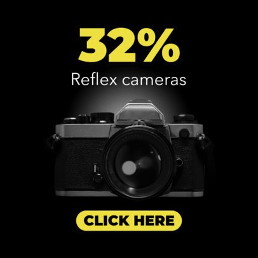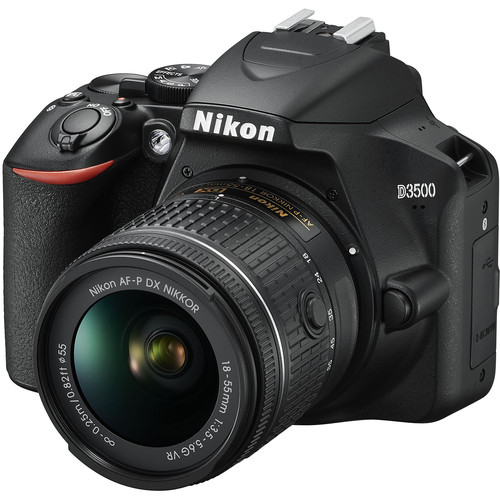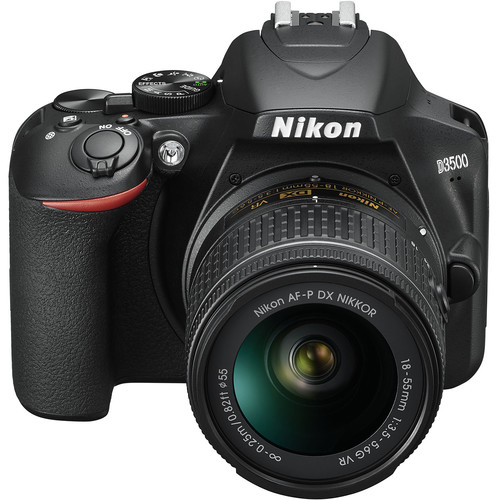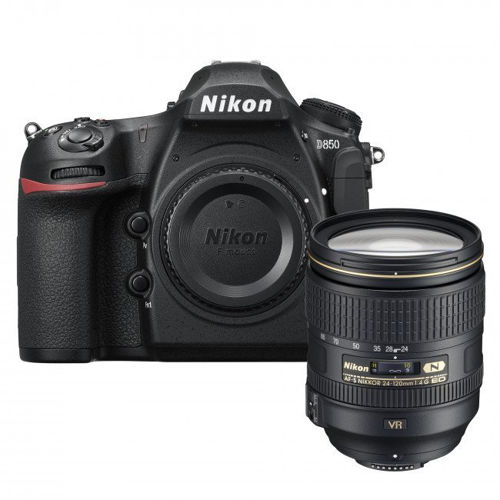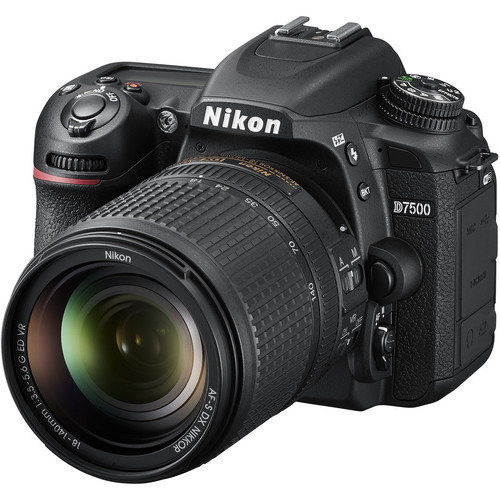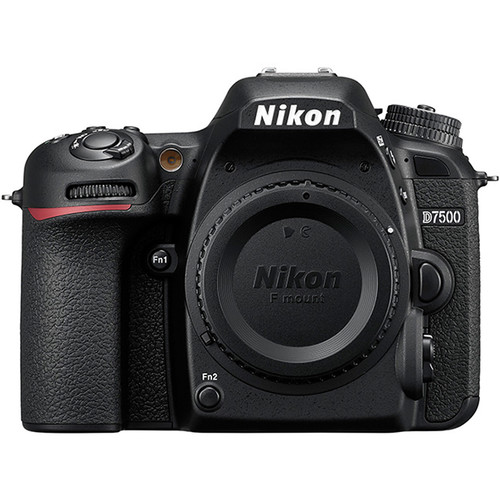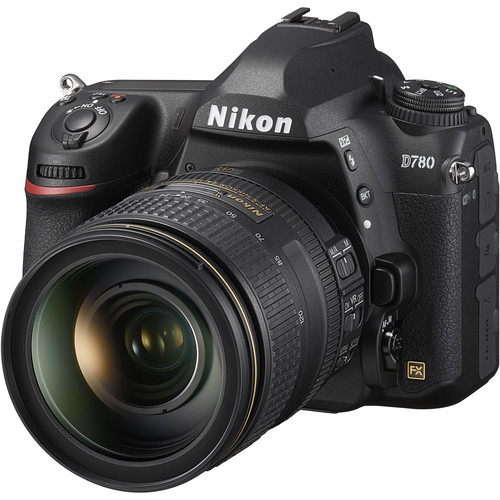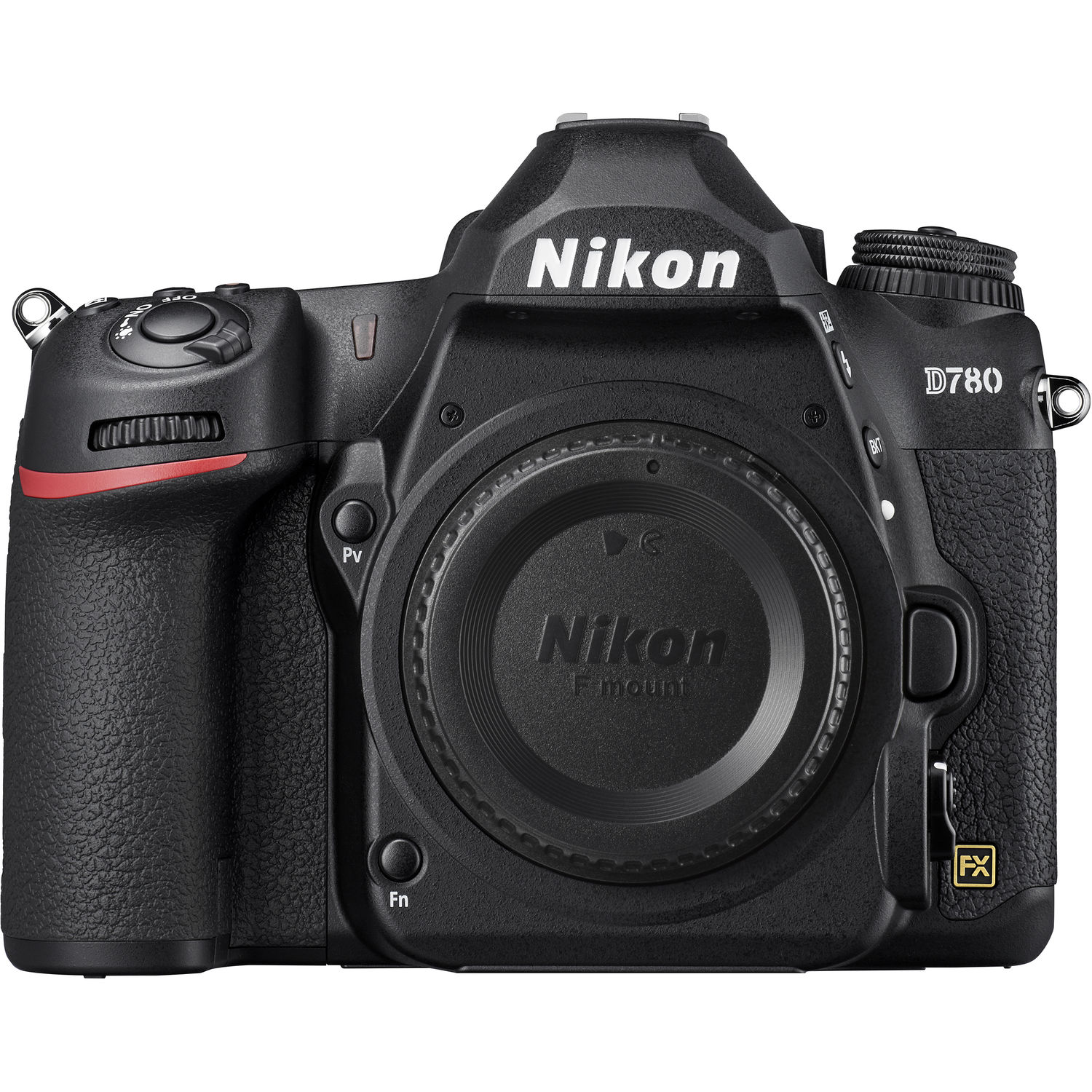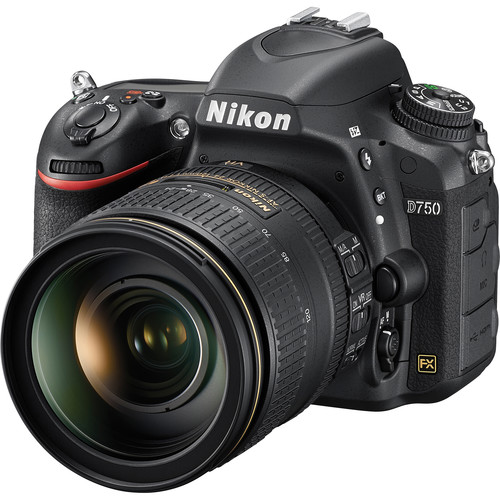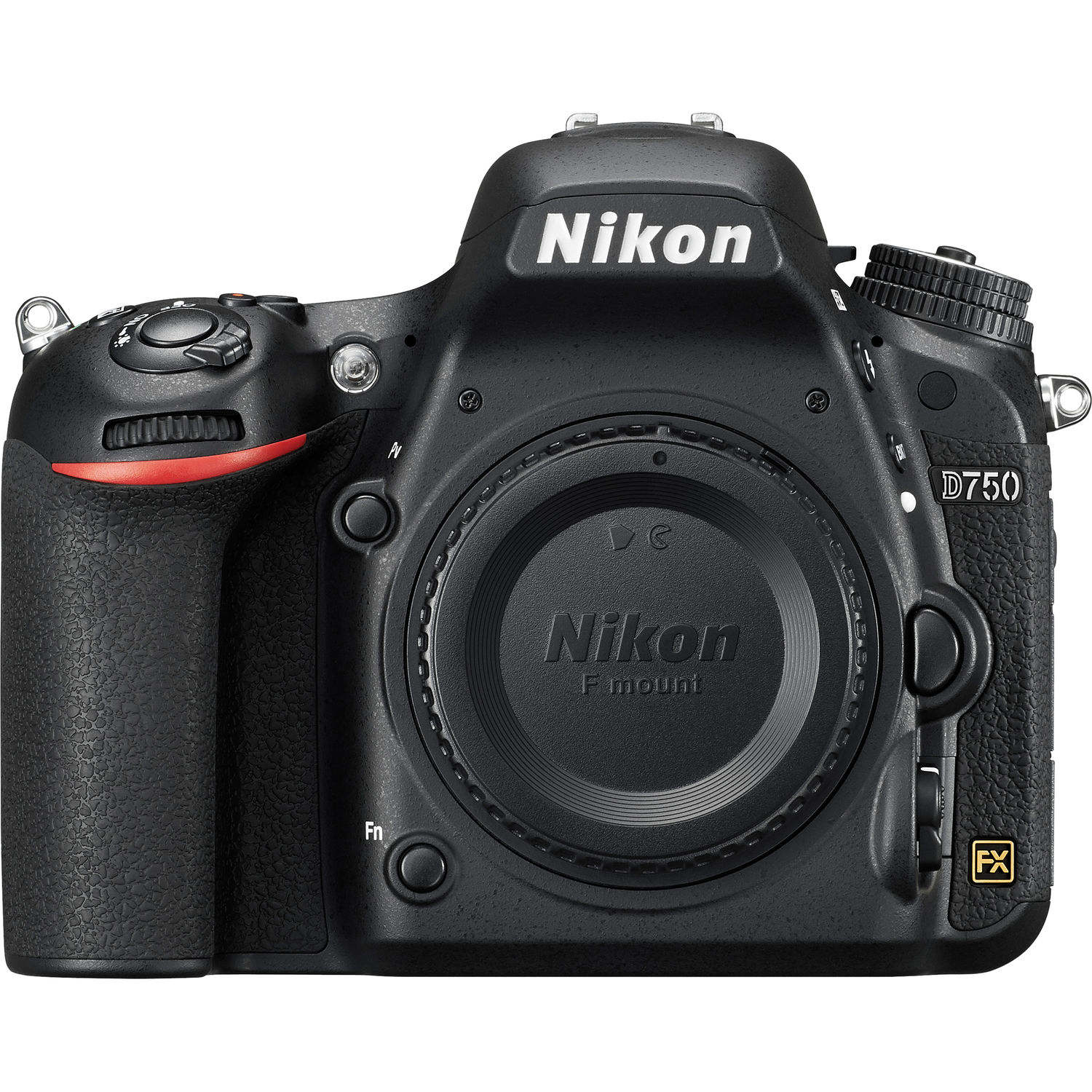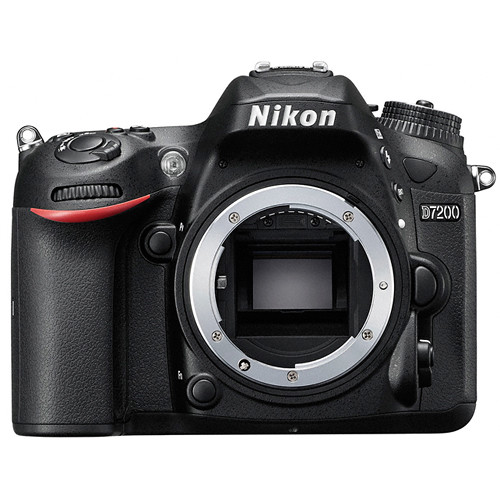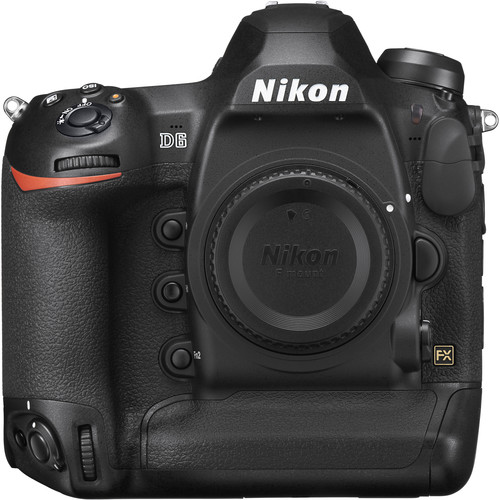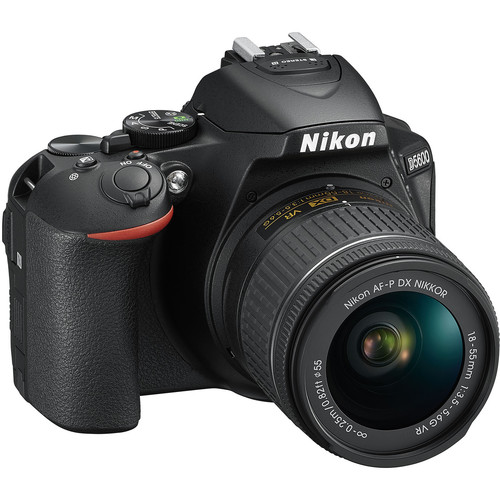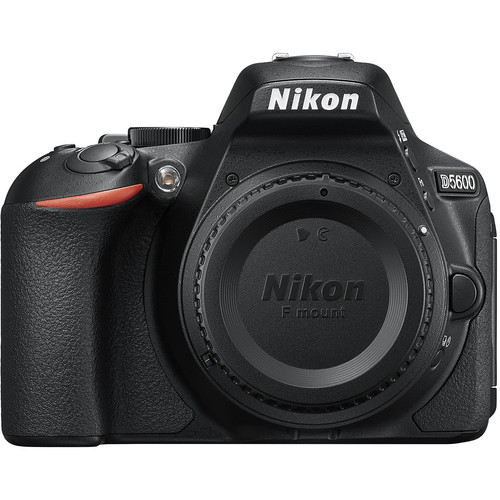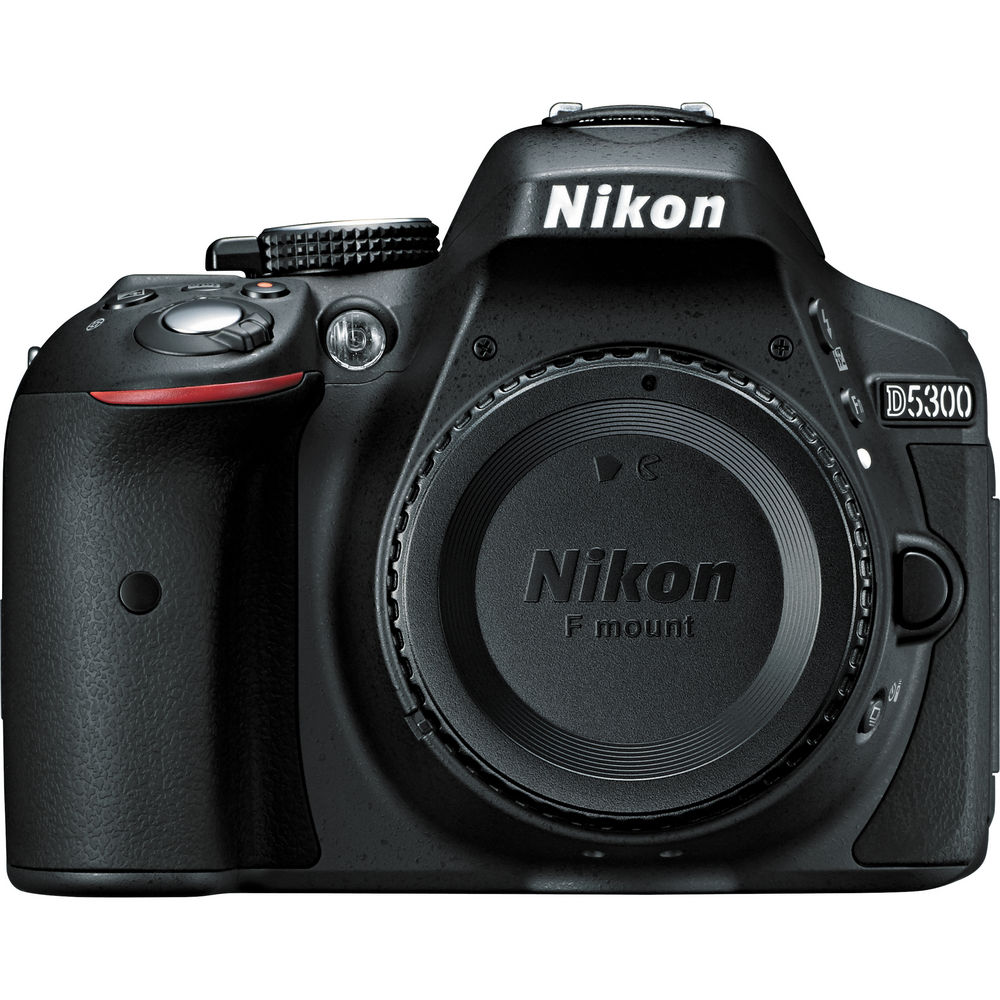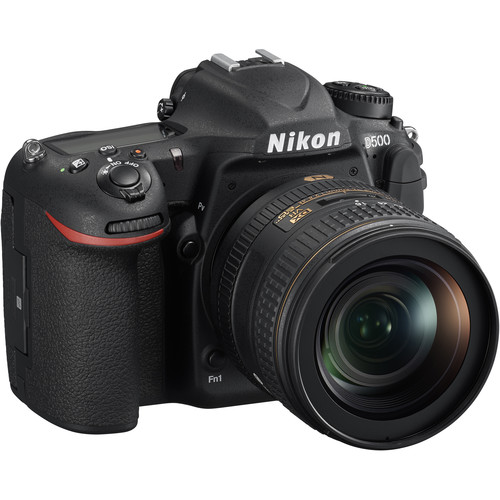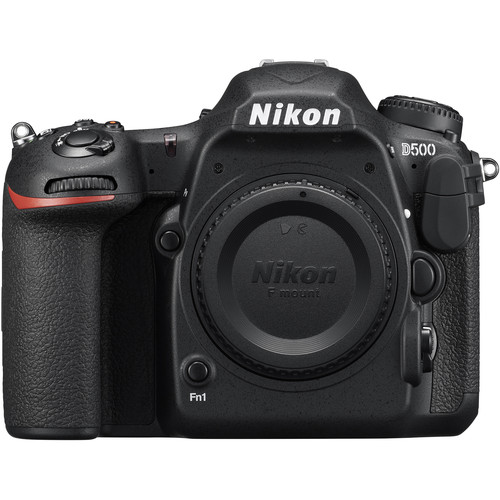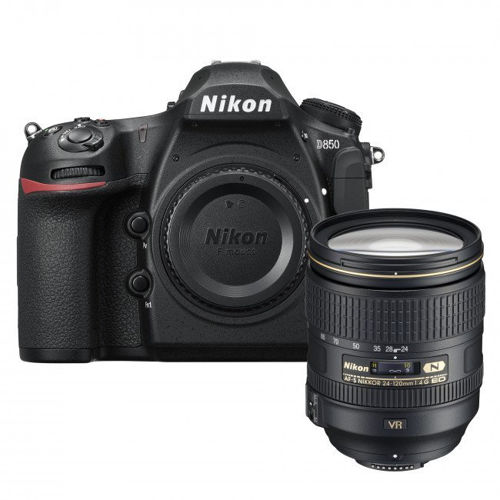
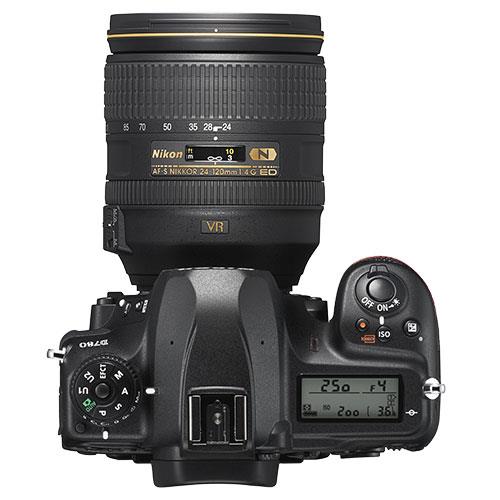
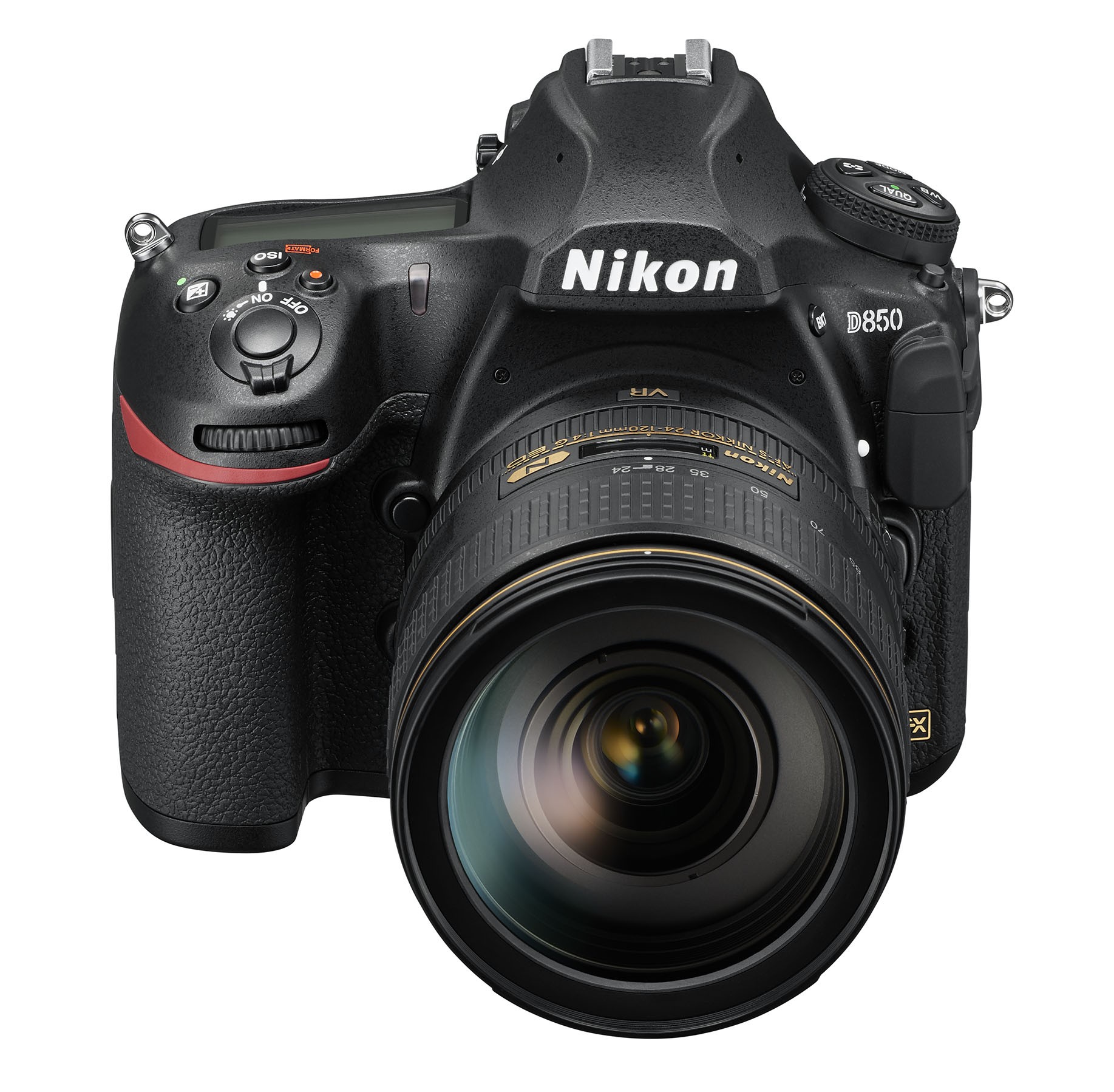
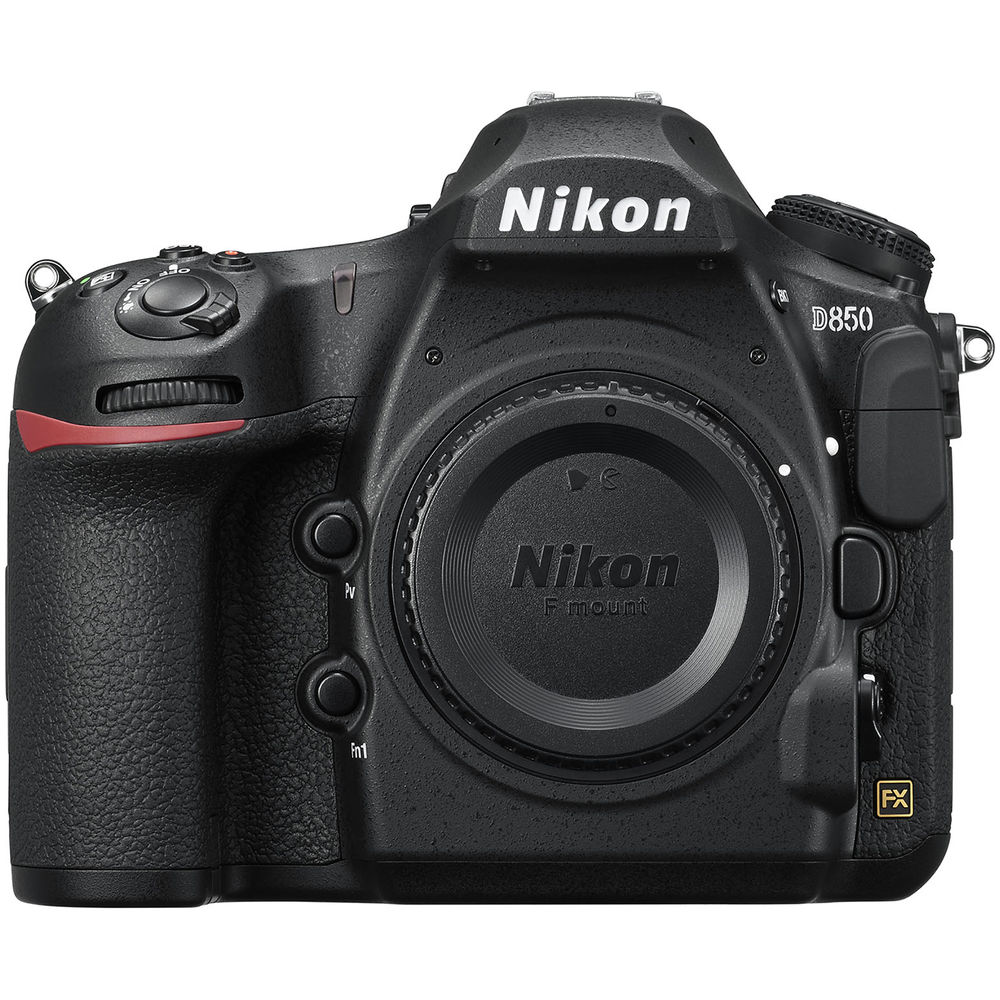
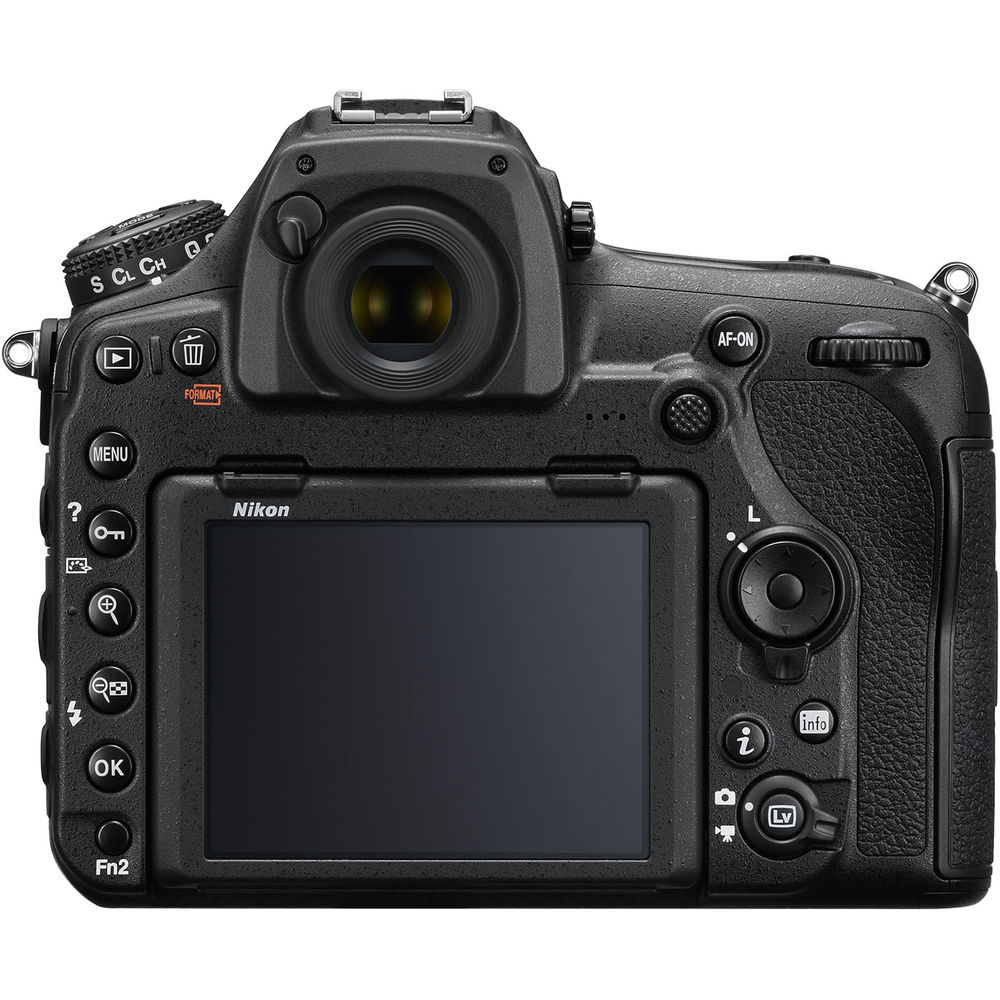
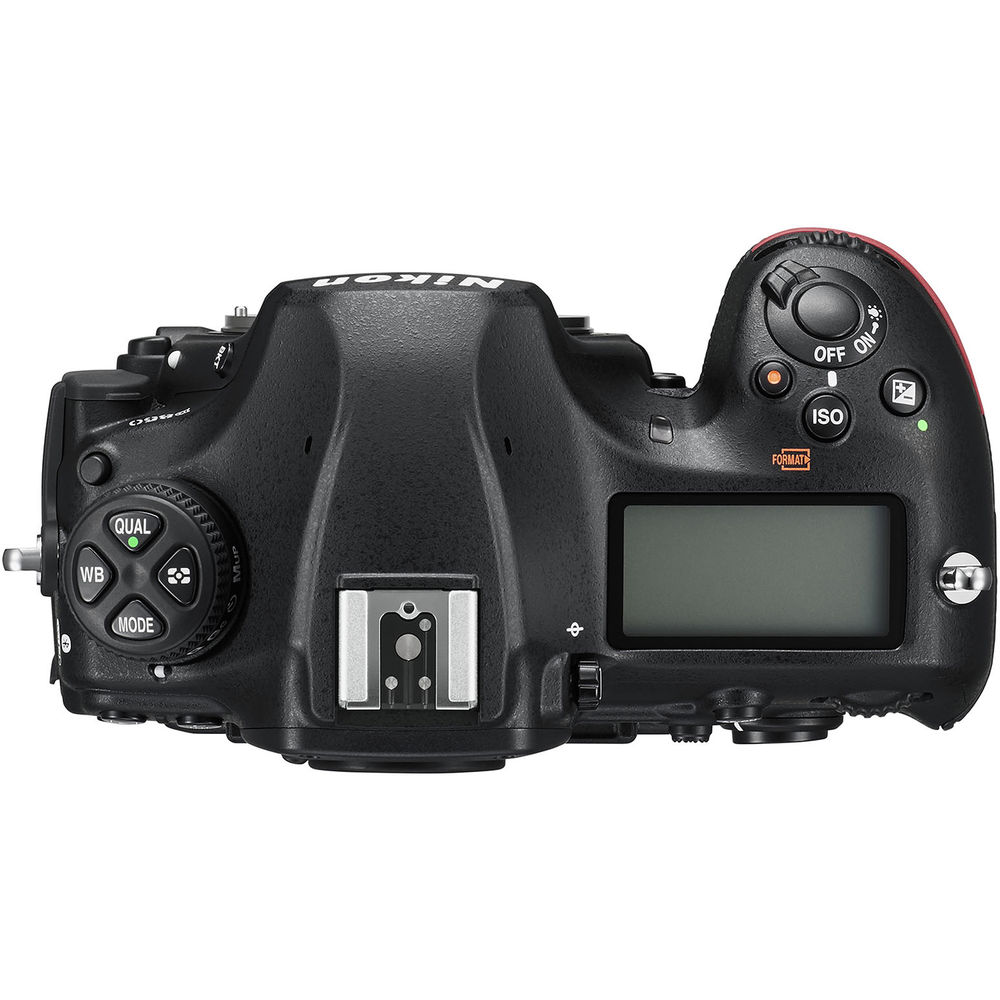






Nikon D850 DSLR Camera (Body Only)
Cameras
Key Features
- 45.7MP FX-Format BSI CMOS Sensor
- EXPEED 5 Image Processor
- 4K UHD Video Recording at 30 fps
- 3.2" 2.36m-Dot Tilting Touchscreen LCD
Overview
Proving that speed and resolution can indeed coexist, the Nikon D850 is a multimedia DSLR that brings together robust stills capabilities along with apt movie and time-lapse recording. Revolving around a newly designed 45.7MP BSI CMOS sensor and proven EXPEED 5 image processor, the D850 is clearly distinguished by its high resolution for recording detailed imagery. The back-illuminated design of the sensor is able to acquire greater detail and clarity when working in low-light conditions, and the sensor also forgoes an optical low-pass filter for improved sharpness. Working in conjunction with the sensor is the EXPEED 5 image processor, which together afford a 7 fps continuous shooting rate for up to 51 consecutive frames, an expandable sensitivity range from ISO 32 to 102400, and 4K UHD video recording using either a DX crop or the entire area of the full-frame sensor. An 8K time-lapse recording mode is also available, as well as additional specialized recording modes for digitizing film negatives and for focus stacking applications. Benefitting the imaging capabilities is an advanced Multi-CAM 20K 153-point AF system, which debuted with the flagship D5 and offers 99 cross-type sensors for refined focusing accuracy in a variety of lighting conditions. Checking off a number of boxes for multimedia image-makers, the D850 positions itself as not only a high-resolution DSLR but also as a camera for speed, movies, and low-light shooting needs.
Balancing the versatile imaging features, the D850 is also equally refined in its physical design. A large optical pentaprism offering a wide field of view and 0.75x magnification affords photographers a bright, clear, and realistic view for critical shooting needs. Conversely, a 3.2" 2.36m-dot LCD touchscreen is also available for live view shooting, playback, and menu navigation, and features a tilting design to suit working from high and low angles. A weather-sealed design is also employed, to suit working in a variety of environmental conditions, and the optional MB-D18 grip can be added to boost overall shooting times and continuous shooting rates. Additionally, built-in SnapBridge allows for wireless sharing of low-resolution imagery and remote live view use on a linked mobile device, and an optional WT-7a Wireless Transmitter can also be used for faster wireless transferring of files.
45.7MP FX-Format BSI CMOS Sensor and EXPEED 5 Processor
A first for Nikon DSLRs, a 45.7MP BSI CMOS sensor is used for high-resolution shooting, impressive low-light quality, and fast readout speeds to benefit continuous shooting, movies, and time-lapse recording. The back-illuminated design of the sensor affords noticeably cleaner high-sensitivity output for reduced noise when working at high ISO values, up to a native ISO 25600, as well as vivid and smooth quality at sensitivities as low as ISO 64. The sensor's design also omits the conventional optical low-pass filter in order to achieve the greatest sharpness and resolution from the sensor.
Benefitting the sensor is the apt EXPEED 5 image processor, which affords a wealth of speed throughout the camera system, including the ability to shoot continuously at 7 fps for up to 51 consecutive 14-bit lossless compressed raw files in a single burst. When working with the optional MB-D18 grip and EN-EL18a/b battery, this shooting rate can be increased to 9 fps, and up to 30 fps shooting is possible when working in a DX crop mode during Silent Live View.
153-Point Multi-CAM 20K Autofocus System
Complementing the rendering capabilities and speed of the image sensor is the robust Multi-CAM 20K AF system, which features 153 total phase-detection points, including 99 cross-type sensors for improved subject recognition, and 55 of the points are selectable for greater compositional freedom. Benefitting the use of super telephoto lenses and teleconverters, 15 of the points, including nine selectable points, are compatible with an effective aperture of f/8, and all 153 points support working with effective aperture of f/5.6 or brighter.
Managing the abundance of focusing points is a dedicated AF engine, which offers quick response times to benefit tracking fast and randomly moving subjects, even at the top 7 fps shooting rate. The AF engine also contributes to enhanced focusing sensitivity, with all points capable of focusing -4 EV for working in very dark, low-contrast situations.
Furthering the versatility of the focusing system, different AF-area modes can be selected to support varying types of subject matter:
- Single-Point AF: The camera uses a single point to find focus.
- Dynamic-Area AF: Available with 25, 72, or 153-point selections, this mode uses a primary single focus point to lock onto focus, and then makes use of the surrounding points for maintaining focus while tracking erratically-moving subjects.
- Group-Area AF: This mode treats smaller groups of AF points as a single point for a wider field of recognition, and is well-suited to tracking faces or other detailed subjects.
- 3D-Tracking: Using a subject's color information, this mode utilizes all 153 points to maintain focus on a moving subject while half-pressing the shutter button.
- Auto-Area AF: This mode makes use of all 153 points to quickly identify the main subject, and then prioritizes recognized faces as portrait subjects in any AF servo mode.
Lastly, a unique auto AF fine-tune function can be employed to ensure the best possible focus for each mounted lens. Rather than relying on photographing distance charts, this function lets you achieve precise focus manually in live view, and then have the AF system calibrate itself to the fine-tuned focus position in order to alleviate front- and back-focusing issues.
4K UHD Video Recording and 8K Time-Lapse
Utilizing the sensor and processor attributes for more than just still imagery, the D850 is also a more-than-capable multimedia camera. Video recording is possible at 4K UHD (3840 x 2160) using either the full-frame area or a DX crop area in 30p, 25, or 24p frame rates. Full HD 1080p video recording is also supported at up to 120p for slow motion playback, and video files can be saved to the in-camera memory cards or as an uncompressed file to an optional external recorder via HDMI out.
Benefitting video recording, a dedicated power aperture button (Pv) makes it possible to achieve smooth, continuous exposure transitions when switching from light to dark areas, and Auto ISO can also be used to maintain a consistent brightness when working in changing lighting situations. Focus Peaking can be used to benefit manual focus control and a Zebra Stripes option is also available to help detect over-exposed areas within the frame. Audio recording can be handled using the built-in stereo microphone or an optional external mic can be added via the 3.5mm stereo jack for greater control over quality, and live monitoring is possible via the headphone jack.
The D850 also blends both still and video capabilities with the ability to produce 8K time-lapses using the Interval Timer Mode or in-camera 4K time-lapse movies, with the ability to record up to 9999 exposures for either method. This system also makes use of a silent interval timer, which produces no shutter noise, does not contribute to wear on the shutter mechanism, and is energy efficient to maximize battery life.
Body Design
- A large 3.2" 2.359m-dot LCD screen is available for bright, clear, and vivid image playback and live view shooting. The screen has a tilting design to benefit working from both high and low angles, and it is also a touchscreen for more intuitive operation, navigation, and settings control.
- The bright optical pentaprism viewfinder offers a large 0.75x magnification and a wide field of view for comfortable and accurate use.
- Configured with one XQD memory card slot and one UHS-II-compliant SD memory card slot, which allows you to extend file saving capabilities by permitting overflow recording, in-camera file-duplicating, or the ability to segregate raw and JPEG files between the two cards.
- A robust magnesium alloy chassis is both dust- and weather-resistant to benefit working in harsh climates and inclement conditions.
- The ergonomic grip and overall form factor is shaped to benefit handling for extended periods of time and is further accentuated by an anti-slip material and a joystick for seamless settings and focus point selection. Additionally, most of the rear buttons are illuminated for greater visibility when working in dim lighting conditions.
- The included EN-EL15a rechargeable lithium-ion battery is CIPA-rated to last for approximately 1840 shots per charge. If paired with the optional MB-D18 grip and EN-EL18a/b battery, you can record approximately 5140 shots per charge.
Scene Recognition System and Exposure Metering
The intelligent Scene Recognition System with 3D Color Matrix Metering III utilizes a 180,000-pixel RGB sensor to evaluate and analyze all aspects within a scene, including brightness, contrast, subject distance, and the scene colors, to quickly determine an accurate exposure and white balance setting to best render the scene at hand. The information gathered is also checked against onboard reference images to ensure consistency from image to image in regard to exposure, white balance, i-TTL flash settings, and subject-tracking AF performance.
Other Camera Features
- Built-in SnapBridge connectivity to enable seamless transfer of low-resolution imagery as well as remote shooting capabilities. BLE (Bluetooth Low Energy) and Wi-Fi enables communication between the camera and a smart device and, additionally, the mobile device can remotely trigger the shutter and display a live view image from the camera to enable working from a distance.
- Faster wireless transfer is possible using the optional WT-7a Wireless Transmitter.
- A Negative Digitizer mode is specifically designed for photographing film negatives and slides to convert them to high-resolution digital files. This mode is intended to be used with the optional AF-S Micro NIKKOR 60mm f/2.8G ED lens and the ES-2 Slide Copying Adapter.
- Focus Shift Mode benefits working with focus stacking techniques by automatically recording a series of images at up to 10 different focus steps. Up to 300 individual frames can be recorded within these 10 steps, with the D850 automatically shifting focus between each shot to achieve an extended depth of field. The sequential images will be saved within a unique folder on the memory card in order to keep each series of exposures segregated for a faster and easier post-production workflow.
- In-camera shooting in the 1:1 square format and classic 4:5 format is possible, and the viewfinder will be automatically shaded during shooting in order to aid in more accurate composition.
- Raw files can be recorded in three separate sizes for expedited post-production, and in-camera raw file batch processing is also possible.
- The D850 is compatible with the radio-controlled Advanced Wireless Lighting system, which permits working with the optional WR-R10 Controller and WR-A10 Receiver, along with the SB-5000, for intuitive, controllable wireless flash shooting.
- Picture Control modes allow you to set predefined looks to imagery in-camera and include Flat, Landscape, Monochrome, Neutral, Portrait, Standard, Vivid, and auto settings.
- Language support: Arabic, Bengali, Brazilian Portuguese, Bulgarian, Chinese (Simplified and Traditional), Czech, Danish, Dutch, English, Finnish, French, German, Greek, Hindi, Hungarian, Indonesian, Italian, Japanese, Korean, Marathi, Norwegian, Persian, Polish, Portuguese, Romanian, Russian, Serbian, Spanish, Swedish, Tamil, Telugu, Thai, Turkish, Ukrainian, and Vietnamese.

